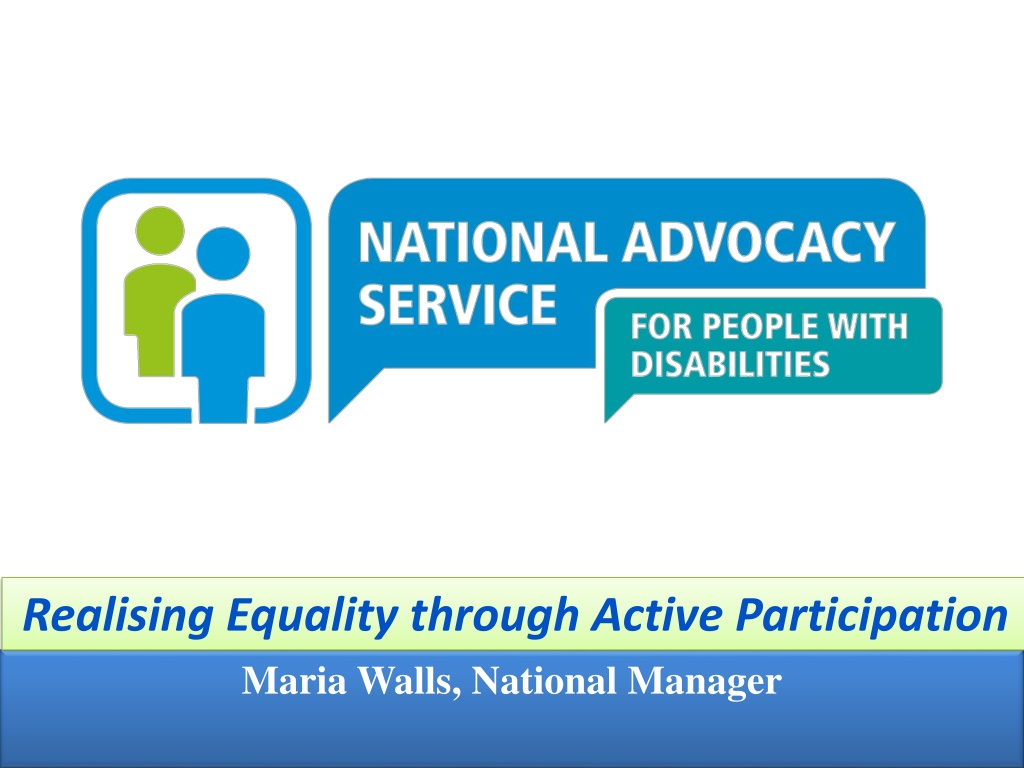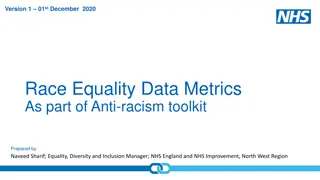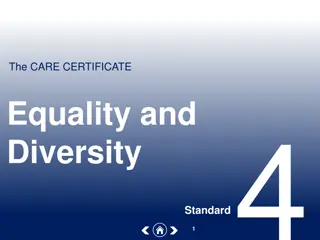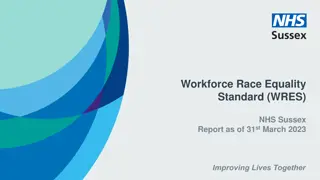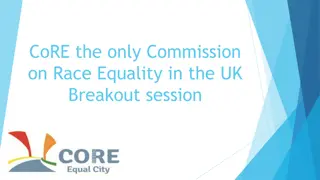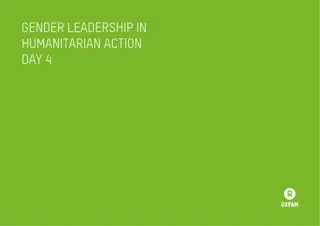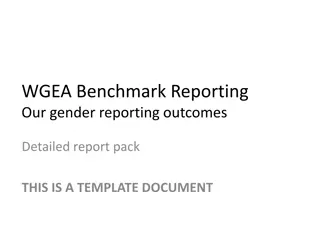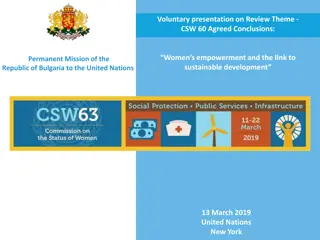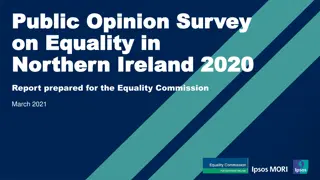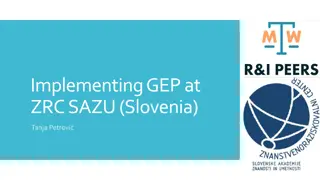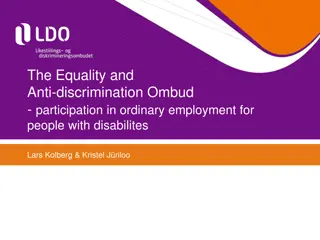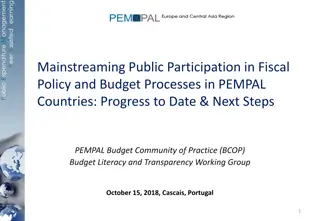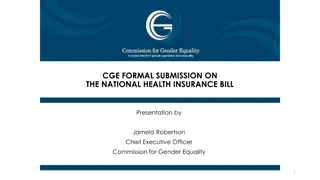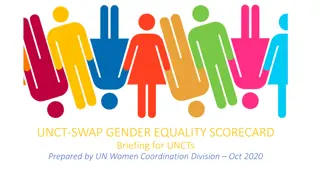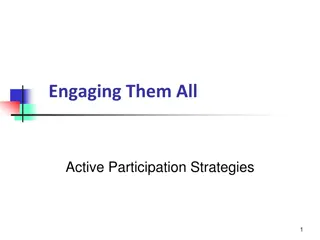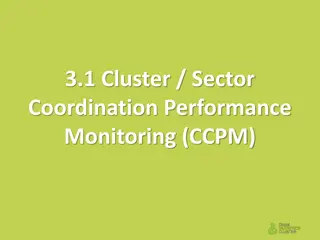Realising Equality through Active Participation
National Advocacy Service (NAS) was established to promote inclusion and equality by engaging with the community and voluntary sector. NAS plays a vital role today, providing advocacy for people with disabilities through trained Leaders and families. Collaboration with organizations, individuals with disabilities, and society is key to promoting solidarity for the Independent Living movement.
Download Presentation

Please find below an Image/Link to download the presentation.
The content on the website is provided AS IS for your information and personal use only. It may not be sold, licensed, or shared on other websites without obtaining consent from the author.If you encounter any issues during the download, it is possible that the publisher has removed the file from their server.
You are allowed to download the files provided on this website for personal or commercial use, subject to the condition that they are used lawfully. All files are the property of their respective owners.
The content on the website is provided AS IS for your information and personal use only. It may not be sold, licensed, or shared on other websites without obtaining consent from the author.
E N D
Presentation Transcript
Realising Equality through Active Participation Maria Walls, National Manager 1
I was asked to speak about... Where did the Impetus to establish the National Advocacy Service come from? What is the role of the NAS today? What is the importance of training for Leaders and families? How can the NAS come together with organisations like T, people with disabilities and wider society to promote solidarity for the Independent Living movement and bring about inclusion and equality?- Network! 2
National Advocacy Service In 2004 the Citizens Information Board engaged with the community and voluntary sector in order to develop advocacy provision. In 2005 and 2006 expressions of interest sought to set up pilot projects - 46 diverse projects 3
National Advocacy Service stage 2 Evaluation Report in June 2010 recommended setting up the National Advocacy Service to create a coherent national service. National Advocacy Service for People with Disabilities was established by the Citizens Information Board and launched by Minister Joan Burton TD on March 31st 2011. National Advocacy Service was managed from 2011 to June 2014 by five Citizens Information Services in Dublin (Clondalkin), Westmeath, Offaly, Waterford and Leitrim. 4
NEW National Advocacy Service Regions 2014 Transfer of undertakings took place on 1st June 2014 ONE new organisation There are currently the following FTE posts employed by the Service: 1 National Manager 4 Regional Managers 5 Administrators 7 Senior Advocates 28 Advocates 5
NEW National Advocacy Service Regions 2014 Western Region Clare Donegal Galway Leitrim Limerick Mayo Roscommon Sligo North East & Midlands Region Cavan Laois Longford Louth Kildare Meath Monaghan Offaly Westmeath Southern Region Carlow Cork Kerry Kilkenny Tipperary Waterford Wexford Greater Dublin Region DUBLIN FINGAL WICKLOW 6
Disability Population by Region Disability Population by Region Southern 28% Gr Dub 30% Western 23% NE & Mid 19% 7
Congregated Settings Congregated Settings Distriubution Southern 27% Gr Dub 32% Western 24% NE & Mid 17% 8
Current Levels of Activity Open cases Nov 10th 2014: not including initial enquiries Greater Dublin North East and Midlands Western Region Cases Southern Region 144 186 92 103 Total 525 9
Advocacy 10
New Developments Getting to One Service & Values Event for all NAS staff and Board 4th & 5th November 2014 The implication of what model of disability we operate in has an impact on what advocacy issues we identify, how we might work and what we might write in how we represent people, what meetings we attend. 11
Approach Equality Medical Needs Social Barriers - discrimination Rights Rights -- ordinary life I choose where I live
Networks Where do Decisions about people s lives get made? 13
National Phone Line: 0761 07 3000 National Advocacy Service for People with Disabilities Ordinary Life Services understand that people need to move out of Servcieland for people to have a life Resources are predominantly tied up in old style services Assessment of need and resource allocation was due last year imminent? New challenge for National Advocacy Service around and supporting people in the process of individualised budgets and accessing brokerage models to have an ordinary life Actions at individual, systemic and strategic levels 14
SUPPORTING DECISION MAKING Endorsing and skilling up on supporting will and preference Supporting legal capacity Advocacy Least restrictive alternative Challenges to Capacity assessments - 15
UPDATES ON SERVICE People always communicate Power of labels Enough is enough healing integrity gaps General desire to support freedom to live an ordinary life Seeing and believing in people's capacity Mindfulness and design thinking -r e disconnect Risk trying to design it different People, staff, culture Duty of Care and Autonomy Dignity of risk not abandoned to risk 16
Getting to One Service & Values Event Actions identified include at different levels: Individual, Systemic and Strategic levels NAG and RAG, National structure to gather reoccurring issues, Feeding into social policy. 17
Allies and Networks Allies and NETWORKS One VOICE ONE position externally Individually Locally Nationally 18
Convention on the Rights of People with Disabilities Basic social rights. Liberty Protective Participation rights rights Personal autonomy rights Equality
Networks CRPD Protection of all rights not just the right to protection
National Enquiry Line: 0761 07 3000 National Advocacy Service for People with Disabilities
